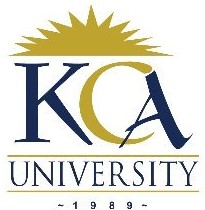
UNIVERSITY EXAMINATIONS: 2014/2015
ORDINARY EXAMINATION FOR THE BACHELOR OF SCIENCE
IN INFORMATION TECHNOLOGY
BIT 4401 KNOWLEDGE BASED MANAGEMENT
DATE: DECEMBER, 2014 TIME: 2 HOURS
INSTRUCTIONS: Answer Question ONE and any other TWO
QUESTION ONE (Compulsory)
a) Define the following terms (4 Marks)
i) Information
ii) Knowledge
iii) Data
iv) Knowledge worker
b) Differentiate between KM and information management? (4 Marks)
c) Describe the advantage of KM over information management? (2 Marks)
d) Describe the link between personal learning and organizational learning? (4 Marks)
e) Describe the difficulties or challenges of Knowledge Management. (4 Marks)
f) What will ensure the success of KM in an organization? (4 Marks)
g) Using examples to illustrate your answers, explain the differences between the following concepts: (4 Marks)
i) procedural and declarative knowledge.
ii) semantic and episodic knowledge
iii) Identify two trends that will highlight the future of knowledge management
(4 Marks)
QUESTION TWO
a) Describe how information technology is used to bring out various solutions for managers in decision making (6 Marks)
b) Discuss in detail the influence of web portals ,ontologies and business intelligence.
(8 Marks)
c) A knowledge audit helps the audited organization to determine what knowledge is being managed and how well it is being managed. Describe with illustrations any
knowledge audit model that an organization can adopt in its KM initiatives.
(6 Marks)
QUESTION THREE
a) Explain in detail the various knowledge management infrastructures required for efficient functioning of an organisation. (11 Marks)
b) Explain the interrelated impacts of KM on organizations at the people, process and
product level. (9 Marks)
QUESTION FOUR
a) Knowledge based Systems (KBSs) are developed to deal with particular application
domains in which alternative techniques are unable to produce reliable and manageable solutions. Identify and discuss five aspects of human intelligence that could be
used to characterise intelligent knowledge-based systems. (10 Marks)
b) Discuss atleast four driving fours in knowledge management. (8 Marks)
c) Identify at least four knowledge capture techniques. (2 Marks)
QUESTION FIVE
a) Discuss critically how an understanding of managing knowledge through history can
help you manage knowledge today. (10 Marks)
b) Briefly explain the strategies adopted by the organisation in sustaining knowledge
culture. (6 Marks)
c) Discuss how KM translates into savings/expenses for the organization? (4 Marks)
